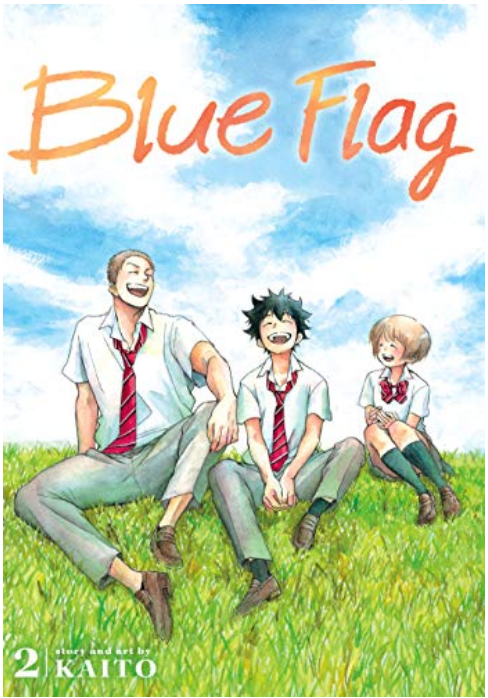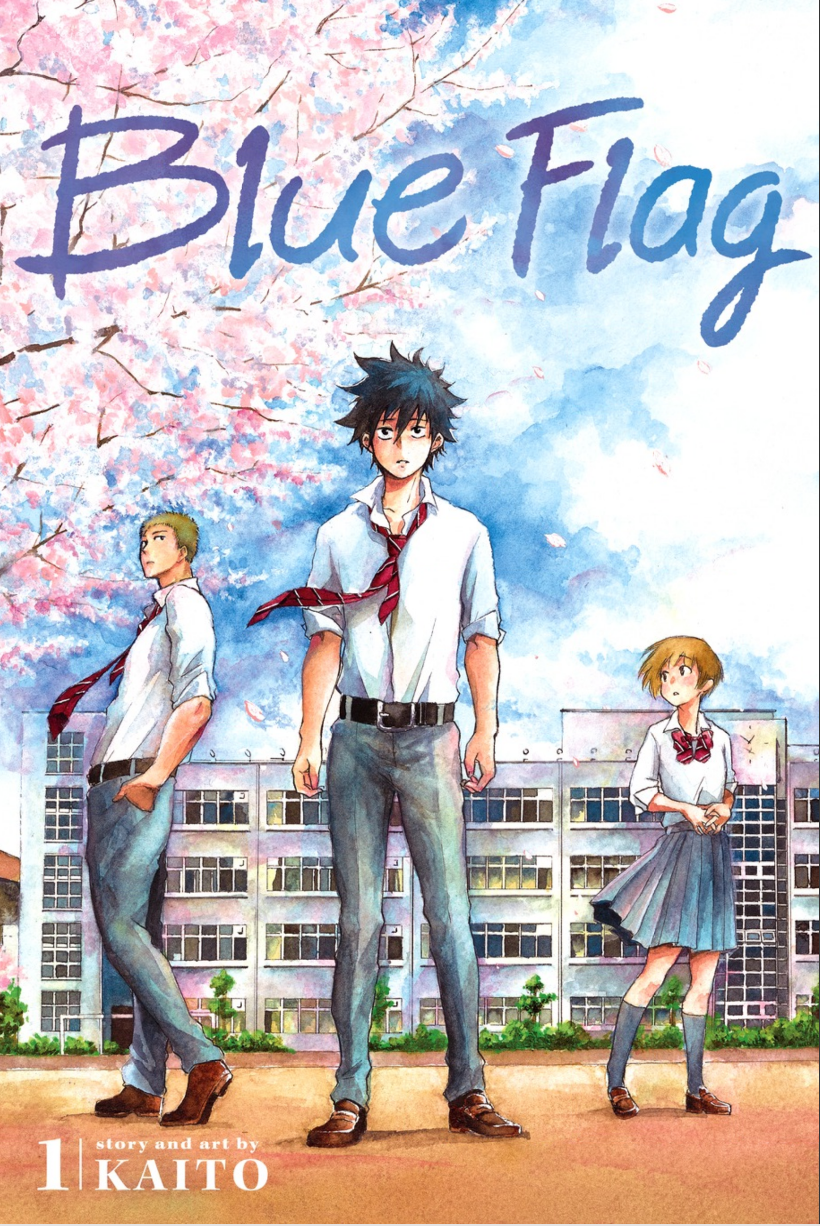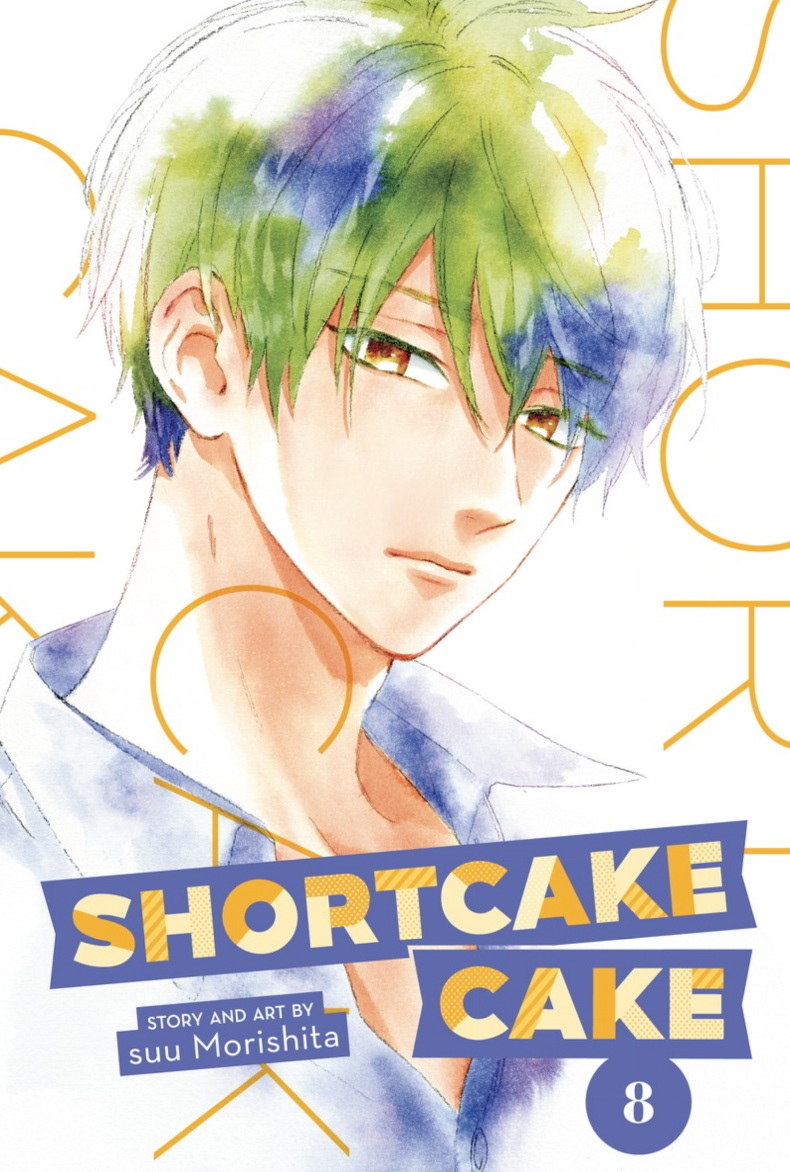Blue Flag Volume 2 by KAITO
This second volume continues to be strong entry in slice of life high school stories, as everybody gears up for an unexpected performance at a school sports day. They’re doing all the typical things teenagers do in spring, hanging out, getting gelato, and discussing everyone’s love life. Apparently Masumi is dealing with a string of short-lived boyfriends, which Toma finds quite startling. Toma gets peer-pressured into being cheer team captain in addition to being anchor on the relay team, and he agrees on the condition that Taichi and Futuba be on the cheer team too as vice-captains. Taichi is characteristically reluctant, but agrees to go along with Toma’s plan. Toma’s charm is key in winning his friends over. Taichi and Futuba diligently practice together while Toma is busy.
Taichi finds out from Futuba that Toma isn’t planning on going to college, and he’s startled because when he and Toma were childhood friends, this was the type of thing that they’d talk about. Friendships shift and develop in new ways, even though Taichi still has feelings for Futuba. There’s a general air of wistfulness throughout this volume as Taichi wonders what’s going to happen as his friends transition away from high school. KAITO’s illustrations set Toma apart from everyone around him, and while this emphasis on his hulking size shows how athletic he is, it also serves as a way of visually distancing him from everyone else. Taichi and Masami also get some one-on-one time, where he shows he’s not very capable at picking up what she’s talking about when she asks him what it is like to experience being attracted to the opposite sex. Taichi’s pondering about Toma’s future also cause him to question his own aimless nature.
It is a pleasure to see this new friend group come together in Blue Flag. While there is certainly drama to be had, it is also somewhat uncomplicated so far which makes it a relaxing read. This volume ends on a big cliffhanger though, so I expect much more drama ahead.








